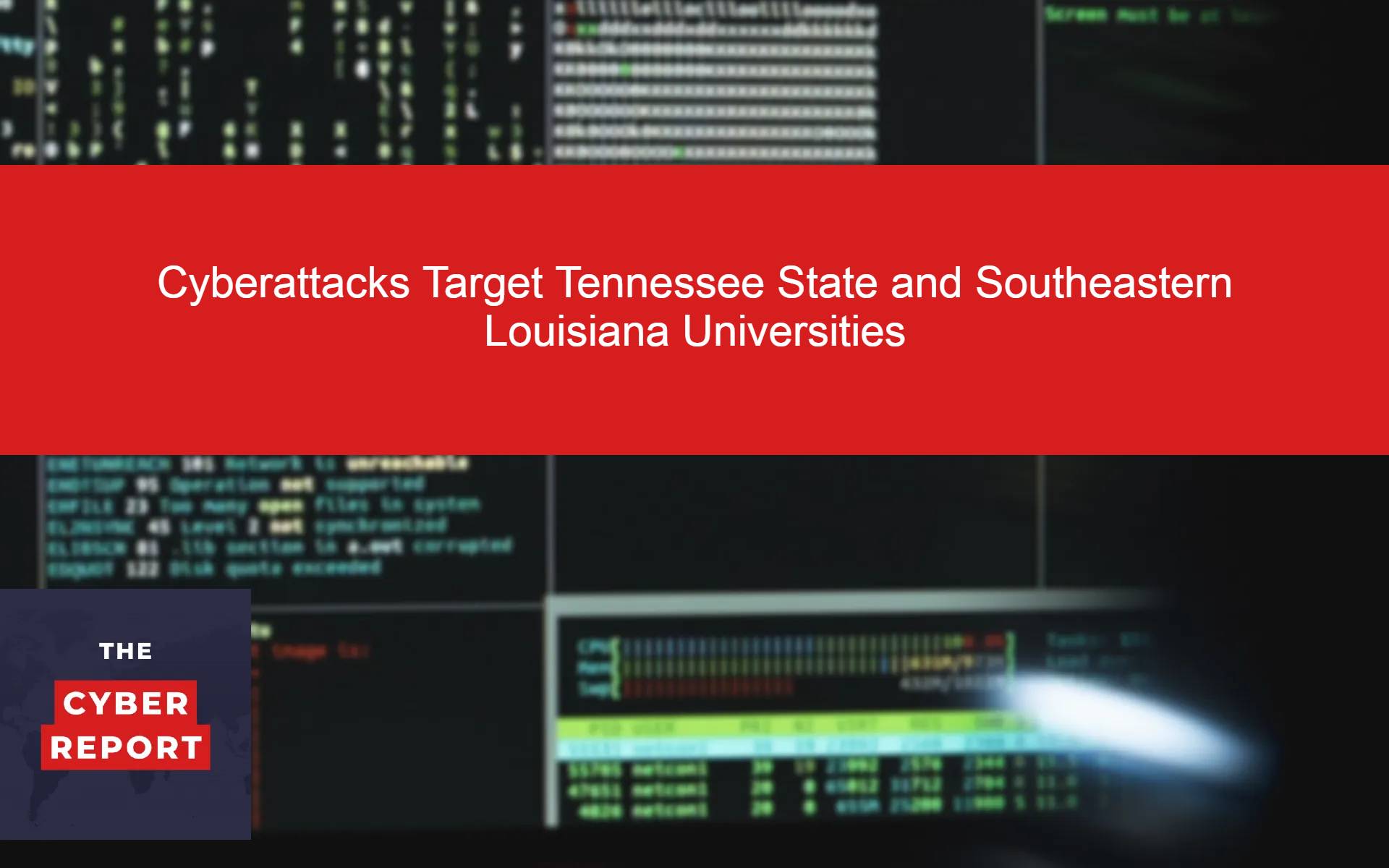Two universities in the South are feeling the effects of cyberattacks this week, with Tennessee State University and Southeastern Louisiana University both suffering from crippling attacks.
Tennessee State University notified its more than 8,000 students on Wednesday, March 1st, that its IT systems were taken down by a ransomware attack, forcing the school to shut down all internet access on campus until at least Friday. Students still have access to their email accounts, Zoom, and campus computer labs, but the school warned that the campus VPN, wireless network, and external websites like Google will not be accessible.
Southeastern Louisiana University also reported a cyberattack on Monday, February 27th, initially reporting network issues five days prior. The school confirmed on Tuesday that the incident was a cyberattack, though it didn't specify whether ransomware was involved. The school has taken the entire campus network offline “as a preventative measure” and the Louisiana State Police is conducting an investigation.
The attacks are part of a startling trend of cyberattacks on U.S. K-12 schools and universities in 2023. As the attacks have grown in number, the threats of ransomware have become more severe, leaving many schools struggling to find the resources to protect their networks.
Cybersecurity experts are raising the alarm about the increasing number of cyberattacks on U.S. schools, with many historically black universities (HBCUs) particularly hard hit and unable to afford the kind of network security needed to protect student and faculty information. Tennessee State University and Southeastern Louisiana University are the latest in a string of schools to be targeted, leaving students scrambling to find alternative tools and access their assignments and assessments.
Preventing Cyberattacks in K-12 Schools and Universities
Chris Close, a leading expert in cybersecurity from Cyber Sleuth Security’s Wilmington branch, believes that k-12 schools and universities should take proactive steps to prevent cyberattacks.
“Cybersecurity should be a top priority for any educational institution,” said Close. “It’s important to have the right tools in place to protect the networks and data of students and staff.”
Close suggested that schools should have a comprehensive cybersecurity policy in place that covers all aspects of security, from user accounts to data storage and protection.
“Schools should also have a designated cybersecurity team that is responsible for monitoring and responding to security threats,” said Close. “This team should be able to detect and respond quickly to any potential threats.”
Close also emphasized the importance of educating students and staff about cybersecurity best practices.
“It is important for everyone to be aware of the potential risks and how to protect themselves,” said Close. “This includes using strong passwords, avoiding suspicious emails, and being vigilant about online activity.”
By taking these proactive steps, Close believes that k-12 schools and universities can better protect their networks and data, and help protect their students and staff from the dangers of cyberattacks.
Source
Tennessee State, Southeastern Louisiana universities hit with cyberattacks

